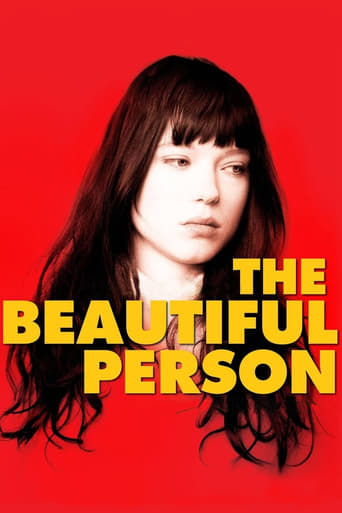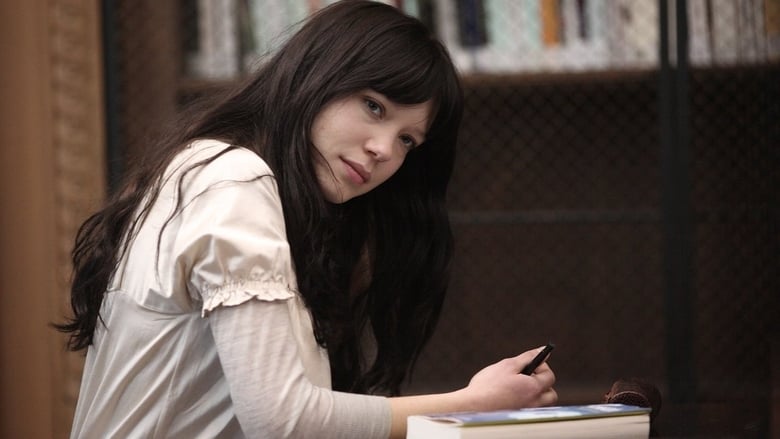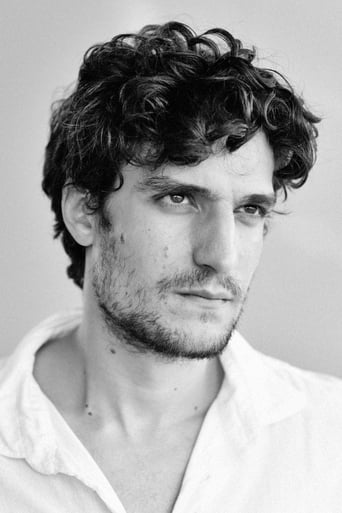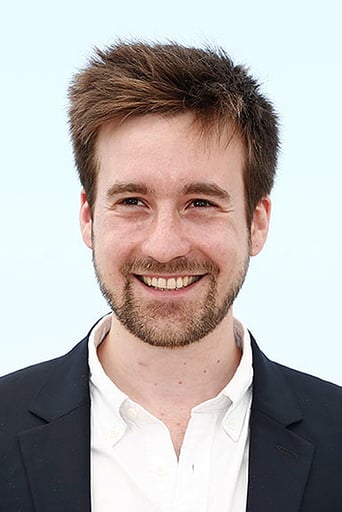The Beautiful Person (2008)
In the wake of her mother's tragic death, French teenager Junie transfers to a different high school. Though Junie lives mostly inside her own head, her beauty and stoicism win her the attention of the entire male student population. Junie begins dating the gentle Otto Cleves, but finds herself intensely drawn to her youthful Italian language teacher, Nemours. When Nemours begins to reciprocate, serious complications ensue.
Watch Trailer
Cast


Reviews
Sorry, this movie sucks
The movie's neither hopeful in contrived ways, nor hopeless in different contrived ways. Somehow it manages to be wonderful
The acting is good, and the firecracker script has some excellent ideas.
The film's masterful storytelling did its job. The message was clear. No need to overdo.
This film is a hidden gem for the lovers of various French traditions: epistolary literature of 17th and 18th century, the breeze of French philosophy of love, friendship and education,, view at old traditional environment of Parisian schools mixed with contemporary teaching styles, love intrigues and tragic resolutions, etc. Without knowing its French context, its difficult to grasp the charm of this movie. Love relations are mostly temporary, no matter how intense they were. Still, in all that mess, from time to time, someone is always ready to die or to kill for it. That is the substance of French literature, art, philosophy, and its always over and over joy to observe it, in cinematic works like this. Especially with two eye-candies such as Lea Seydoux and Luis Garrel, who at the same time, happen to be good actors. Two songs played in French fit very well the movie, the other songs sung in English were actually total misfit. French film for the French culture lovers. Recommended for calm rainy afternoons.
I honestly thought I was watching a film from the 60s until I looked it up on IMDb. Everything rung of the 60s from the washed-out color palette (lots of white, grey and cold bluish tints) to the inexplicably brooding, emotionally muted female protagonist who falls into a love tangle (as in Buñuel's "Belle du Jour" (1967) or Vadim's "Le repos du guerrier" (1962)) to the very 60s French soundtrack (Nick Drake, Alain Barrière, Callas) to the big hairstyles on men. And of course there are heavy themes of love & sexuality, common to those classic French films that defined the genre "60s French film". Imagine my surprise when I learned that this film was made in 2008 from a novel (La Princesse de Clèves) set in 1558 in the court of King Henry II of France.I have to admit, I didn't like this film at first. Coming from a relatively puritanical culture, it didn't sit well with me that the film was about a 30-something high school teacher trying to seduce a 16-year old student. But if you can get past that, and if you can get past the premise that each character has 2 to 3 paramours in a tangled web that would make Shakespeare resort to his slide rule, then you'll be OK. This is very much a tale of loose sexual morals, but that is precisely the intent. The question posed is: can 1 true love exist, free of all the scandalous infidelities & betrayals, or is human nature such that impetuous desires and unchecked emotions always cause sexual & emotional chaos?You may find yourself needing to watch this film a 2nd time or, as I had to do, rewinding certain scenes to figure out exactly who is who, especially if you're watching the English subtitles. That is because the love triangles (and love rectangles and love pentagons) come at you pretty fast with no big explanations for the slow folks in the audience. But even if it doesn't sink in at first, you'll probably have a decent grasp by the end of the film if you pay close attention. While I found this to be frustrating at first, I felt ultimately satisfied that the director took this approach, not holding our hand to lead us through every plot point. Instead, like the web of love & deceit itself, the plot is intended to be challenging if not confusing.In the 2nd half, the story distills down to the main 3 characters, and the final 30 mins pack a whollop. My only real criticism is that it seemed to drag on 10 minutes beyond the dramatic climax & revelation, thereby watering down the effect of that powerful scene. Other than that, I found this to be a masterful telling of a tale that begins slowly, convoluted & seemingly uneventful, but then it snowballs to a rich and satisfying closure.
Christopher Honoré's La belle personne is a compelling curiosity; transposing the courtly world of Madame de La Fayette's classic 17th century story, La Princess de Cleves to a modern-day French lyceé (with its own courtyard), the film is a compelling observation of "courtly" love in a postmodern world; although it would be convincing to argue La belle personne is not very modern in its presentation of present-day bourgeoise Parisian etudiants. This is a world that exists in its own hermetically-sealed bubble, free from Facebook and the internet. It's a world where 60s navel-gazing reigns supreme.The film follows the tribulations love brings, or perhaps more realistically, the tribulations of what one perceives as 'love', even if it's unconsummated. The title alludes to 17-year-old Junie (Léa Seydoux), whose aura and presence recalls a ghostly incarnation of Godard's muse Anna Karina (Perhaps a self-conscious homage to Godard by the FEMIS-teaching Honoré?). Following the death of her mother, Junie refuses to live with her father (for unknown reasons), choosing instead to live with her cousin, Mathias, in a haute-bourgeoisie Parisian arrondisement close to the school she and Mathias attend. ' Soon enough Junie becomes the default objet d'amour for the male etudiants, namely love-sick Otto (Grégoire Leprince-Ringuet) at first. However, she soon troubles the cad-in-school Italian teacher, Nemours (the lanky yet ever-foppish Louis Garrel) with her otherworldly presence, prompting him to quickly end two amorous entanglements with a middle-aged fellow teacher and a stubborn 16-year-old female student. However, as one would expect fron the source material, tragedy foreshadows this story but it does not detract from this near-perfect made-for-TV drama. Every performance is realistic and natural. Special kudos to Garrel and Sedoyx for their work here. Honore follows the mis-step that was Chansons D'amour with this elegant, masterfully composed concoction; even if you could argue La belle personne seems to be an inverse reworking of Chansons. With the ensemble of regulars (Garrel, Hesme, Mastroianni, Leprine-Ringuet etc), traversing both films, La belle personne perversely feels like a sequel somehow taking place in a parallel world to Chansons. In spite of some questionable if strained directorial nods to the Nouvelle Vague (mentioning them would spoil the end), Honoré shows restraint and an uncharacteristic sense of detachment. The way he directs Seydoux is a revelation. Her ghostly presence haunts the film in every aspect and should be noted as a performance of great integrity and resolve from this promising actress. As a modern-day exploration of courtly love, La belle personne, is worth seeing numerous times to catch the many subtleties it withholds on first viewing.
and that pretty well sums up the deepest message of this adaptation of "La Princesse de Clèves". Having seen this at the 33rd Cleveland International Film Festival, I will admit to not having an appreciation of Christophe Honore's other work, have not read the book, nor did I recognize any of the actors. The film is put together reasonably well technically. Everyone is young, thin and good-looking, with many a fine pout below a classic Gallic countenance. There were (too) many relationships to track on a first viewing, and I did not understand the motivation for most of the characters. Why does everyone fall in love with Junie? Why does she break down and cry in class? As a high school-age tale, the self-absorbed interpersonal world is apt, with enough sexual tension and romantic intrigue to satisfy the requirements of this genre.







